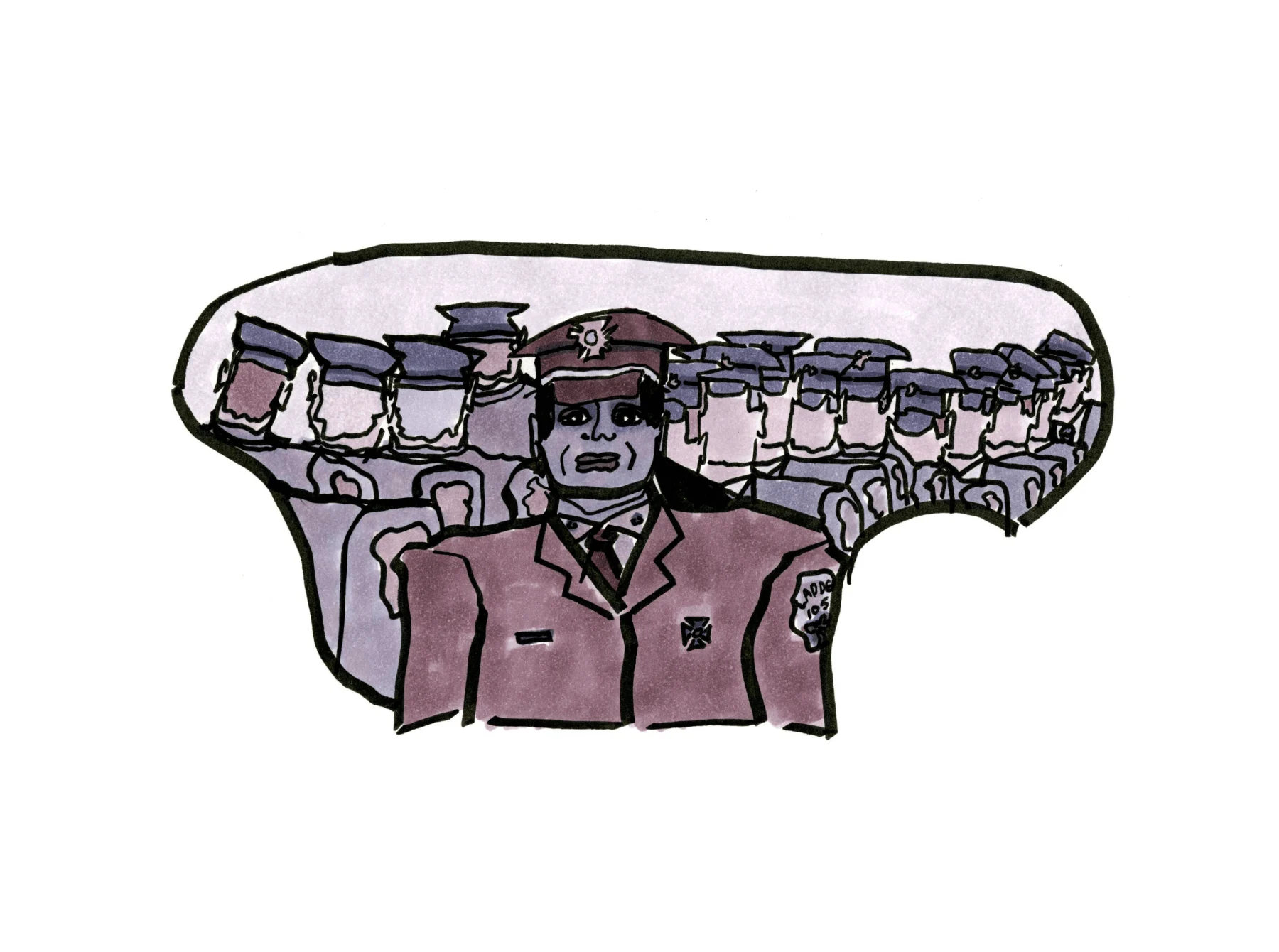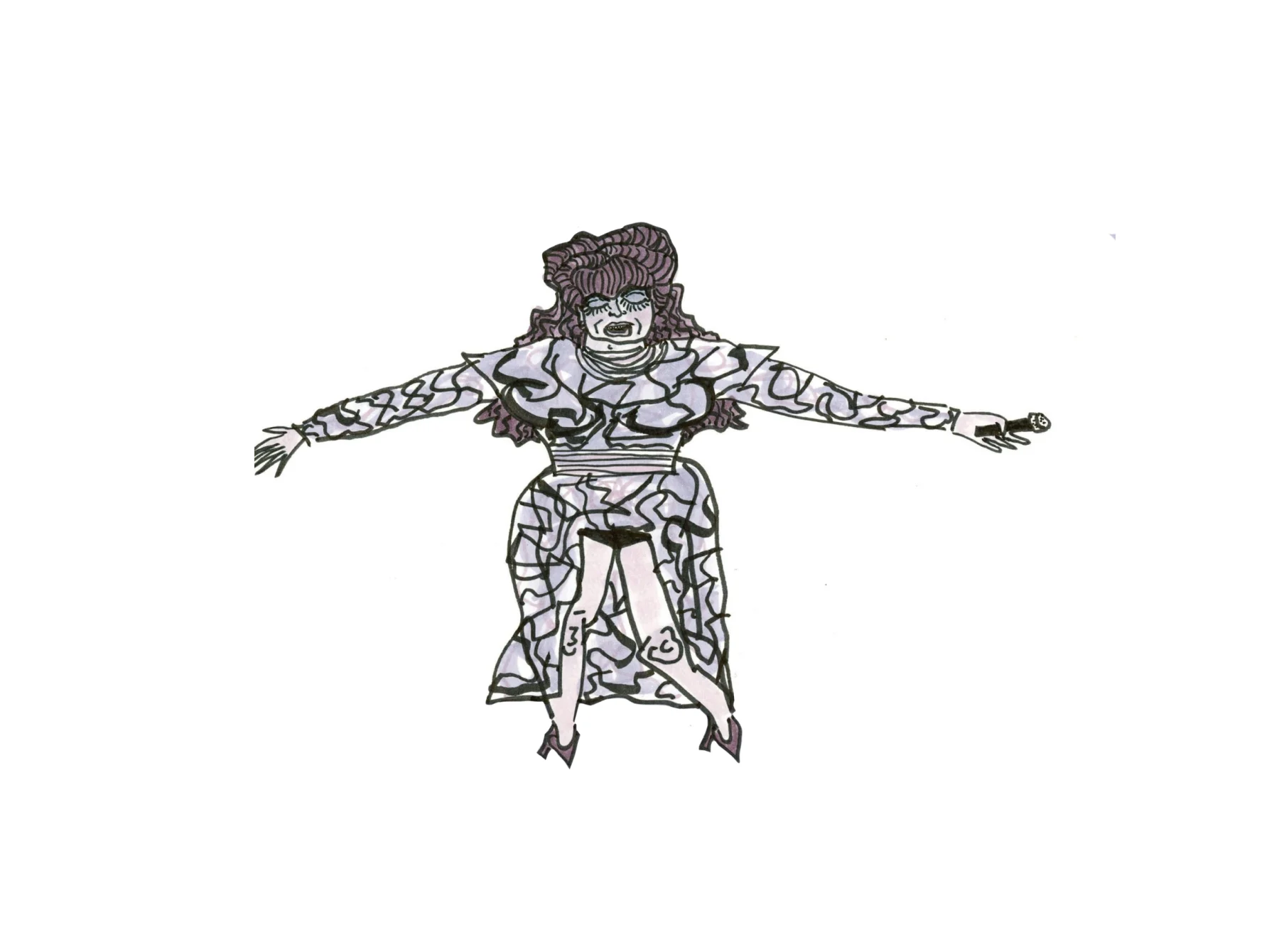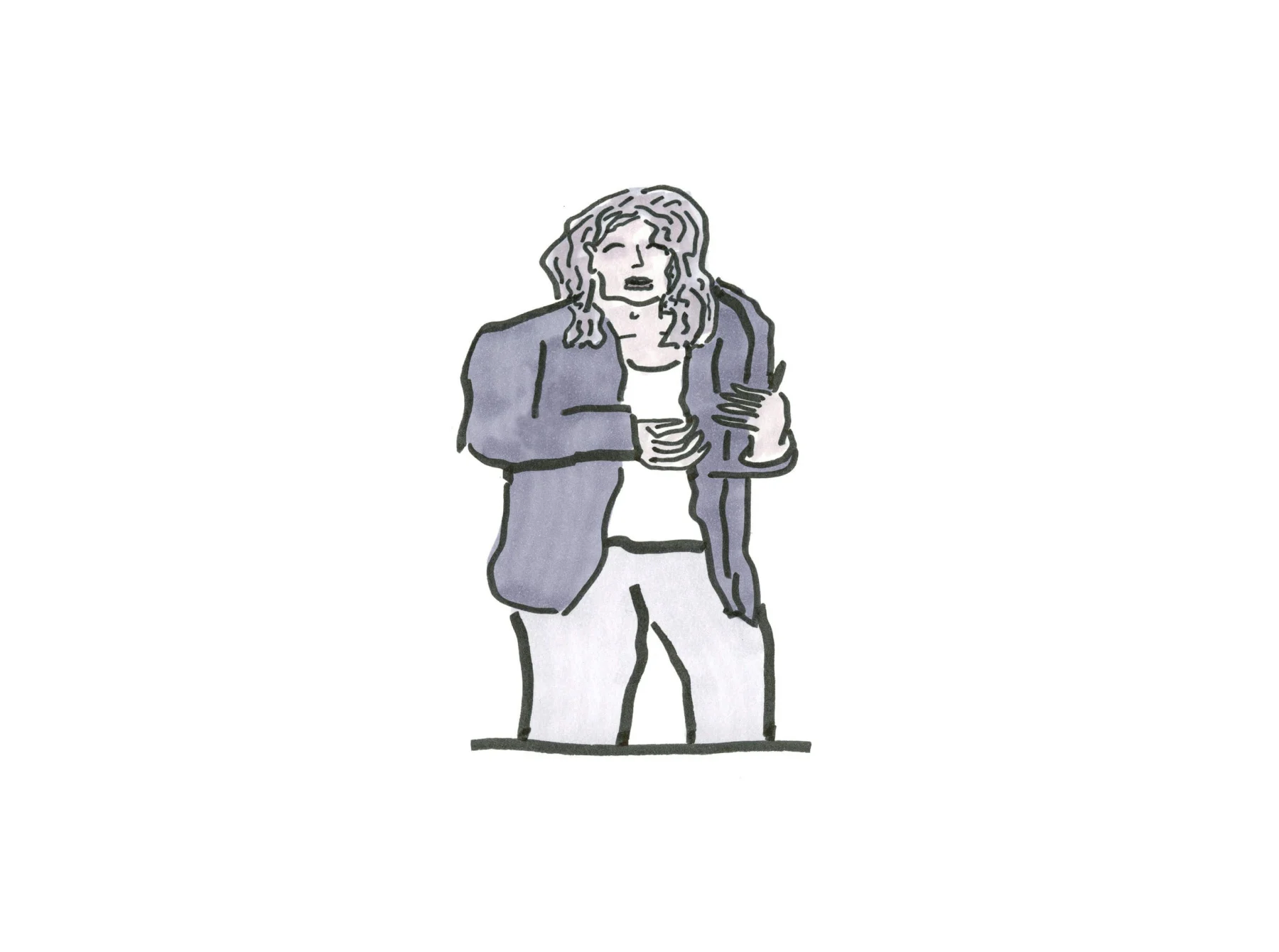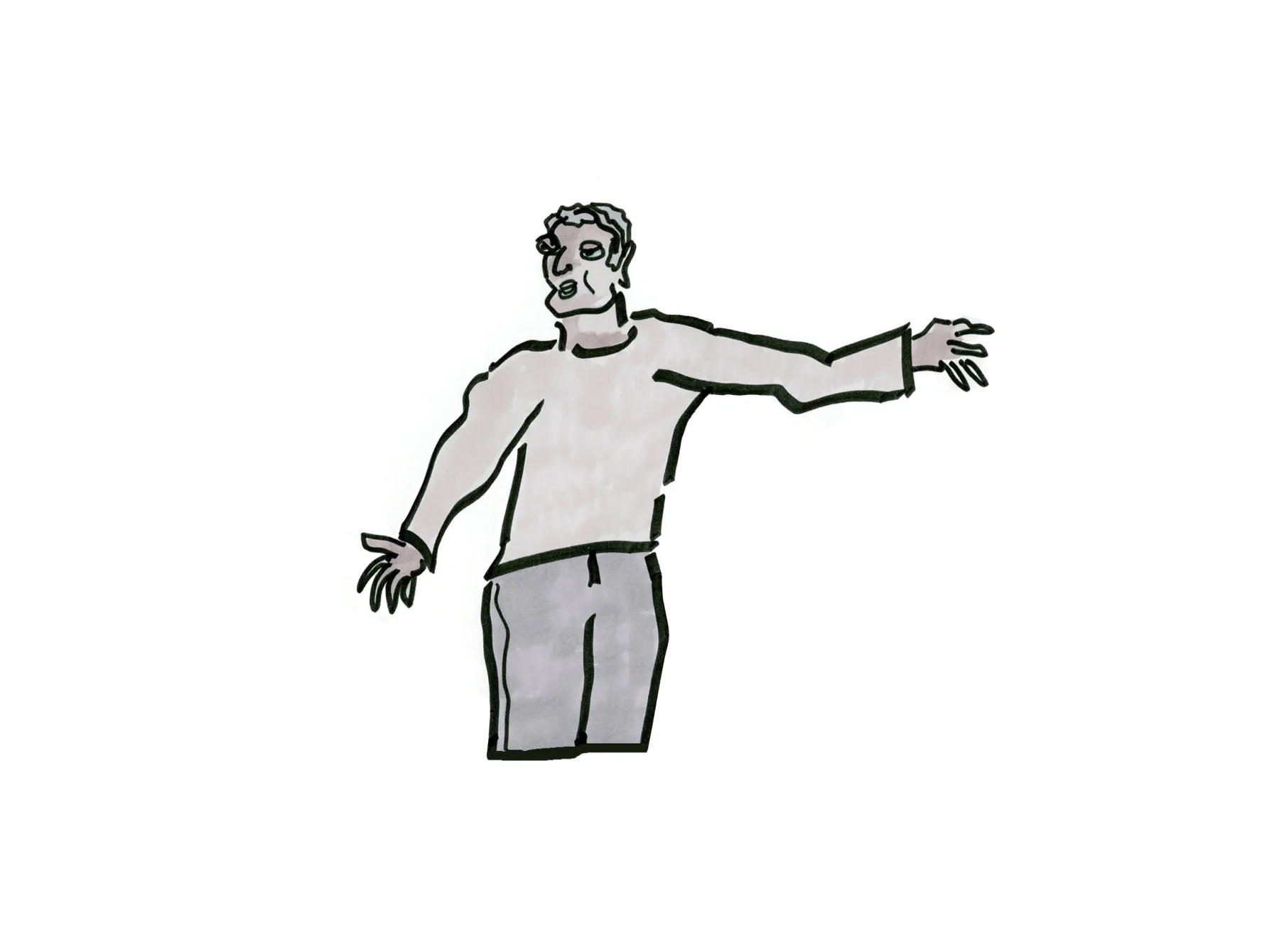
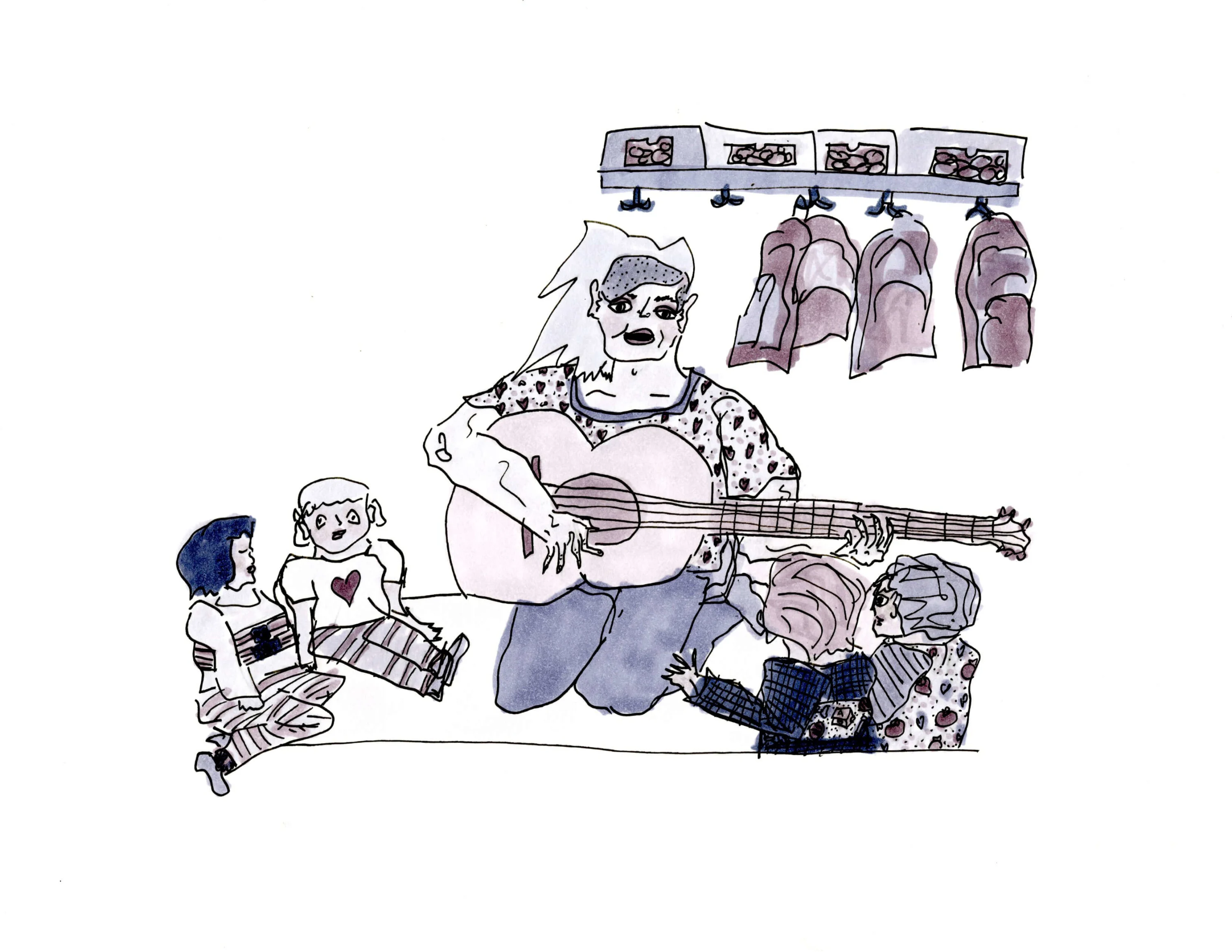
Canadian artist Peaches (born Merrill Nisker) says she “fell into” being a musician, but you wouldn’t know it to see her on stage. An exhilaratingly provocative performer, her high-energy persona brings extra force to her feminist statements making her one of the most interesting artists working today.
Peaches spoke to University of the Underground founder Nelly Ben Hayoun when she visited the campus in Amsterdam.
Illustrations by Heather Loase.
We’re teaching students how to infiltrate power structures – you’ve done that as well with your music haven’t you?
I never really thought about the music business you know. I was just thinking about what I want to do – how I can express myself and say what I want to say. I try to go beyond music.
So do you think the performance element adds to the political component of the music?
There has to be good music – music that makes you want to sing or dance. That’s where the political part starts because I used to sing and dance along to horrible music; super misogynistic and sexist, non-woke lyrics.
The point for me was to be able to make music for a certain demographic. I want them to first enjoy the music and feel comfortable with it, and then to realize the meaning behind it. It’s important they dance and enjoy it first, that it doesn’t feel like it’s preaching.

And then after that they digest it?
They digest it and take it the way they want. Quite frankly if you push it down people’s throats they’re going to choke and walk away. It’s my method to make people feel comfortable through dance, movement and humor.
What was your education like?
I was a theater student. I wanted to make cool musicals, which was super unpopular. People always think musicals are really fluffy and crap, but that’s not what I wanted to do. I wanted it to mean something and to transform.
I grew up with weird psychedelic shows like Tommy and Phantom of the Paradise. They were weird and did things you couldn’t do now. So I got onto this director’s program. I dropped acid one night (I’ve only done it once in my life) and I realized this program is not for me, and I dropped out the next day.
I realized I just needed to learn.
I realized I just needed to learn. I didn’t need to go into theater. So then I started to take all these interdisciplinary classes – I took visual arts and had a really strict teacher. The first part was very figurative. We did life-drawing and sculpture. She would literally look at my work and shout, “you’re stupid,” because I didn’t know how to draw. That’s not where my mind was at.
The second half of the year was Marcel Duchamp and Dadaism and Situationists and I loved it. I started to buy old blenders and pianos and build weird stuff, and the teacher said, “What happened to you? Now you’re brilliant.”

And then I understood there is a creativity that I was interested in that wasn’t the set way. It’s about teaching yourself – being resourceful and finding meaning.
And then I also took a class with theater students and dancers and visual artists. I did performance pieces. I ended up with a Bachelor of Fine Arts. So that was really helpful for me. I just started to live life. I ended up in a folk band, and we played once a week and had this following. Young girls would sneak in and cry to our music. I thought, I’m a musician, I don’t wanna do folk music. I got a job in a daycare, and all the teachers were so tired. I would just make up songs with a guitar and the kids would light up, and it would just create a whole learning experience.
I would teach them about colors and planets and they would learn something in each song. We would also do popular stories. If we did Peter Pan and every boy wanted to be Wendy and every girl wanted to be Peter, we would still make a story out of it. It was about showing them that it’s important to express themselves.
It doesn’t always have to be what you think an experience should be. It just has to be something that shifts what you thought you knew.
How do you see the role of the institution?
When people think about things being institutionalized there’s always this conflict between the new and the old. Institutions don’t have to be old, because I think what you’re doing is quite new and open, so that will help people to be more curious.
Institutions are very intimidating for no reason.
What is an experience for you?
I doesn’t always have to be what you think an experience should be. It just has to be something that shifts what you thought you knew.
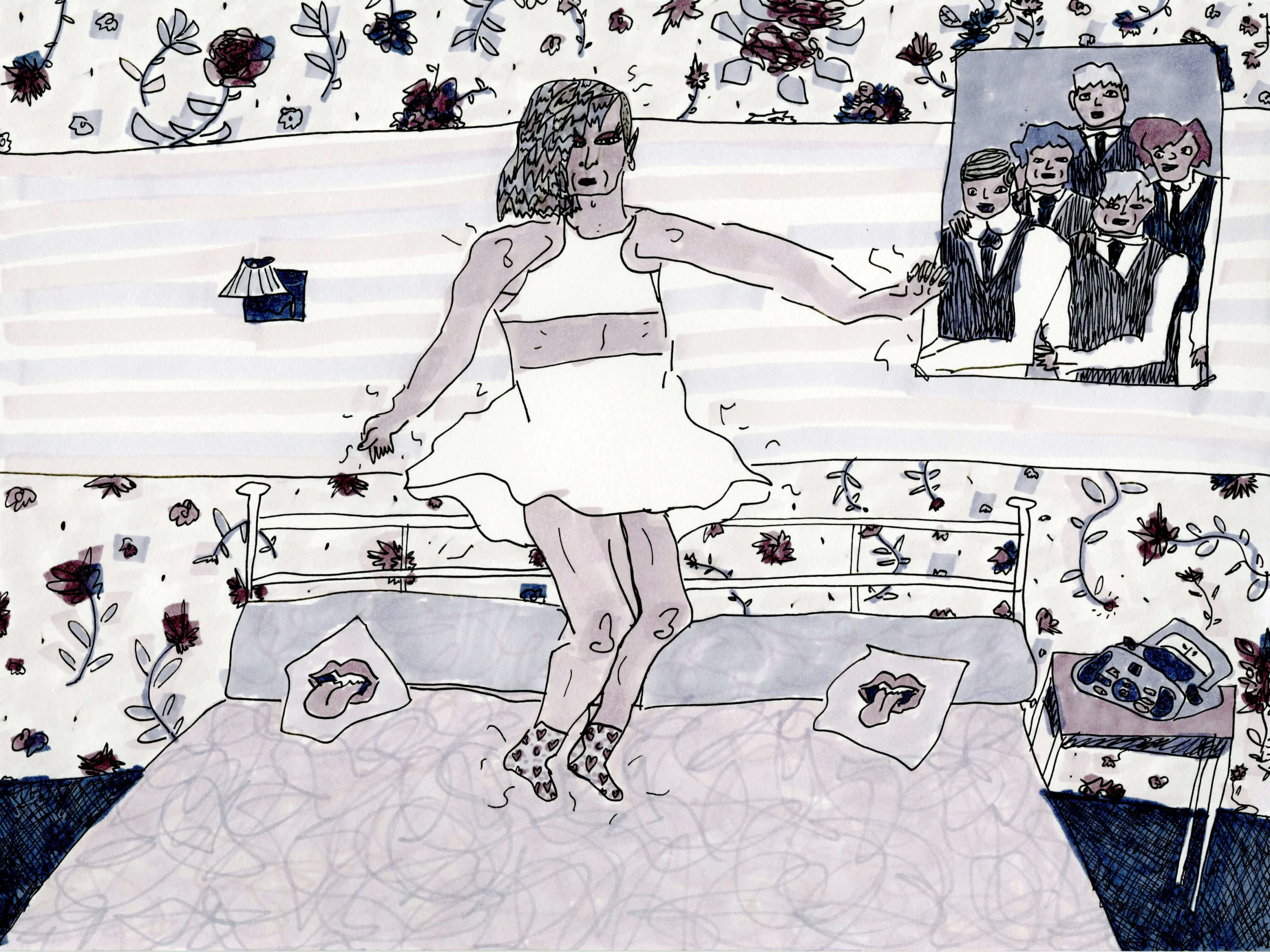
Does that have to happen in the moment or can it happen way after?
It can happen way after. The stimulus happens in the moment but it can confuse you or make you angry or you might not understand it. And then it doesn’t feel like an experience, but looking back you think, oh it’s coming together.
What would you tell young people in general?
I want them to really experience tactile, real situations. Don’t completely fall into the digital world. It’s very difficult not to.
Of course it’s an important part of your world, but it’s also important to remember the real experiences of humans and contact and feelings and bodies.
WeTransfer is a proud supporter of the University of the Underground. This free two-year Masters program uses design thinking to tackle the world’s biggest problems.
Notes from the Underground is an interview series curated – and sometimes conducted – by its founder, Dr Nelly Ben Hayoun. From a world-renowned curator to an anarchist drag artist, the pieces take us into some of the most unusual creative minds working today.



